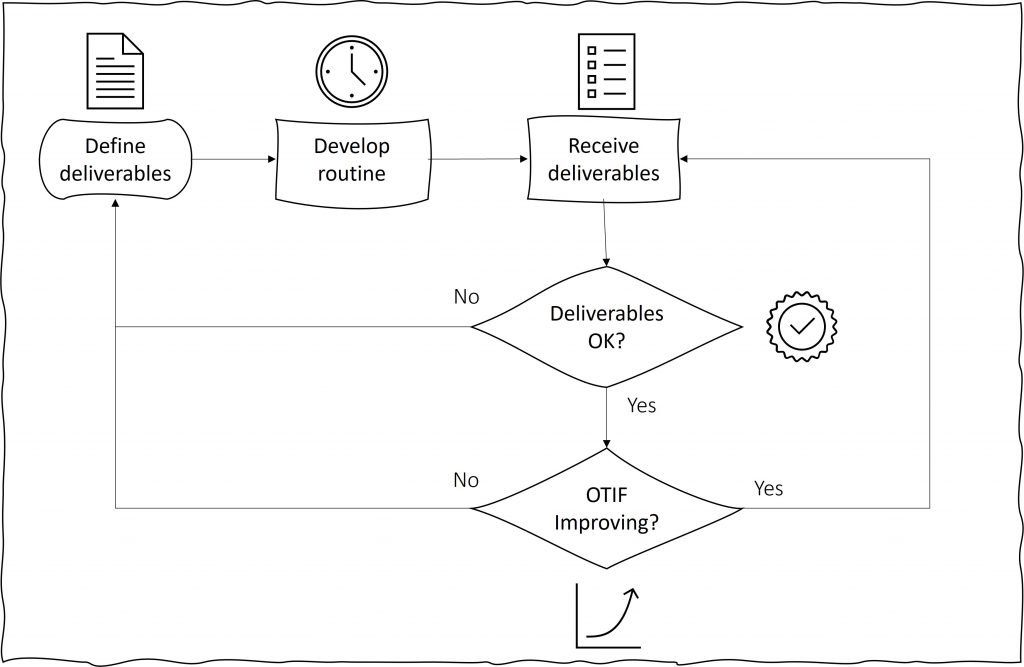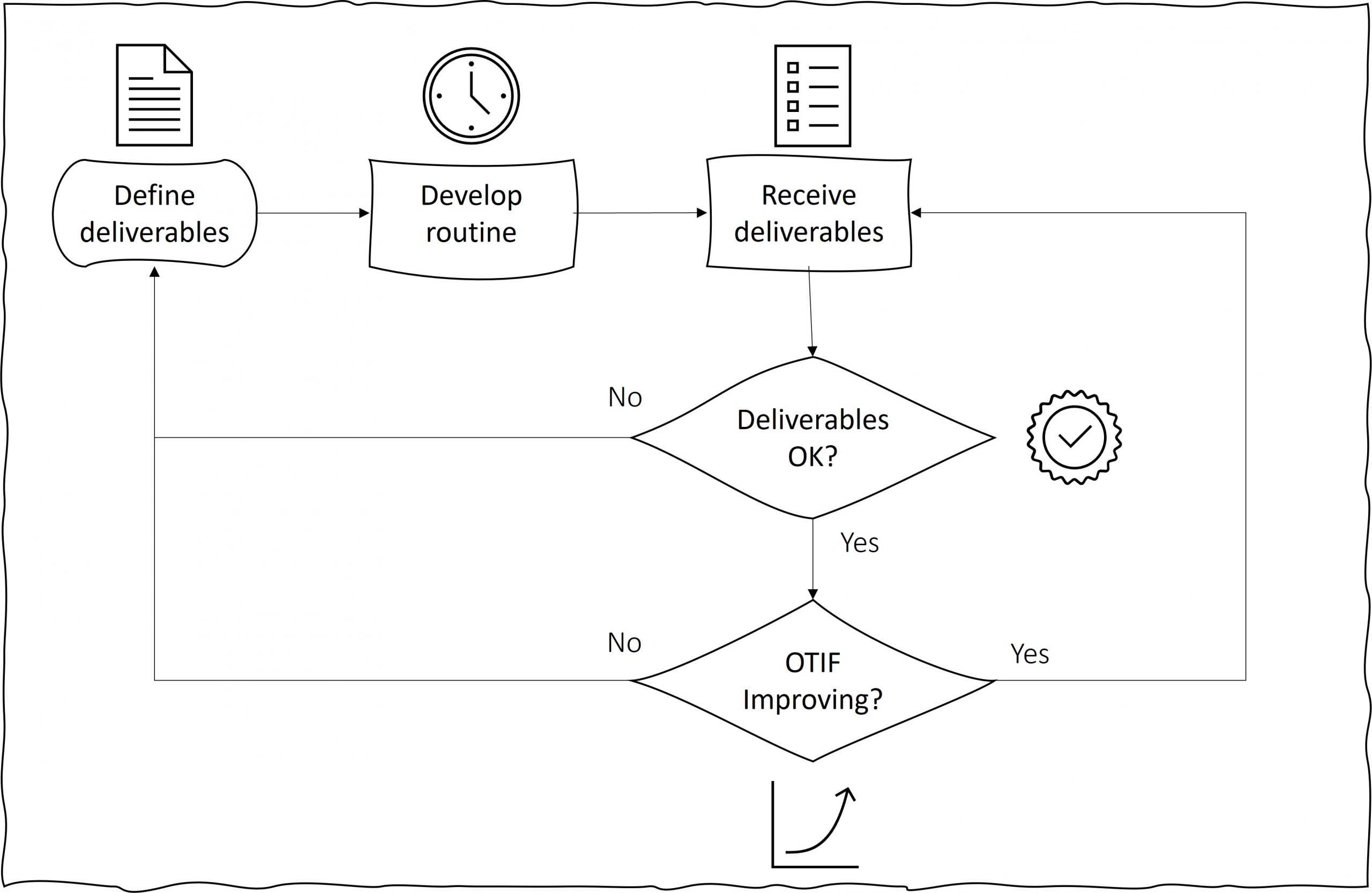So, you’re looking to improve your on time delivery performance, your OTIF score.
The focus of this website is very much around improving OTIF through systems. Ensuring control is present at all levels of your business is a big part of this equation. The deliverables from your system is the focus of this article.
Often, as managers, we fail to articulate exactly what we want as outputs from our team. We don’t get clear enough about what our expectations are.
Why we need clear deliverables
But, why is this a big deal? The outputs, the deliverables, are evidence of our system working. The quality of these outputs provide a sign of how effective our system is.
Let’s be honest, habits are easy to drop. That’s why there are so many books out there about developing habits. Also, it is a lot easier to maintain a habit than forming one.
So… the routine that underpins your business is a formalised habit. In fact, defining a routine is one of the best ways to help establish habits. Habits are merely unconscious, automatic, routines.
Developing clear deliverables
When I talk about being clear about deliverables, I mean:
- What do you want?
- When do you want it?
- How do you want it presented?
- Who do you want it from?
- Where do you want it delivered?
If you can answer those questions, you have a good chance of getting what you want.

The role of management
Of course, you need to hold up your part in this deal. If the deliverables aren’t right, you need to say something. If you don’t get what you need, you need to ask why.
You can’t afford to let the discipline of receiving slip. If you do, then you are as guilty as the person that hasn’t produced the deliverable.
The importance of small wins
The small wins lead to the bigger wins. They build momentum through avoiding crises, developing skills and creating familiarity. One good day can lead to a good week, and so on.
Getting your deliverables sorted out is the act of defining the small wins.
What are these ‘small wins’?
- Issuing the production schedule on time.
- Performing multi skilling exercises
- Enquiring about overtime availability
- Carrying out the machine maintenance checks
- Clearing goods in, each day
- Racking away of materials
- Auditing your 5S system
- etc…
Disciplines and habits build results
These little wins can become crises later on if you ignore them. These crises suck up huge amounts of energy just to stay on track. If high levels of OTIF performance is your goal, dodge these avoidable crises!
Define your deliverables and set the minimum standard to see what happens. This is a true Kaizen approach, work on getting the basics right and watch the benefits start to snowball.
